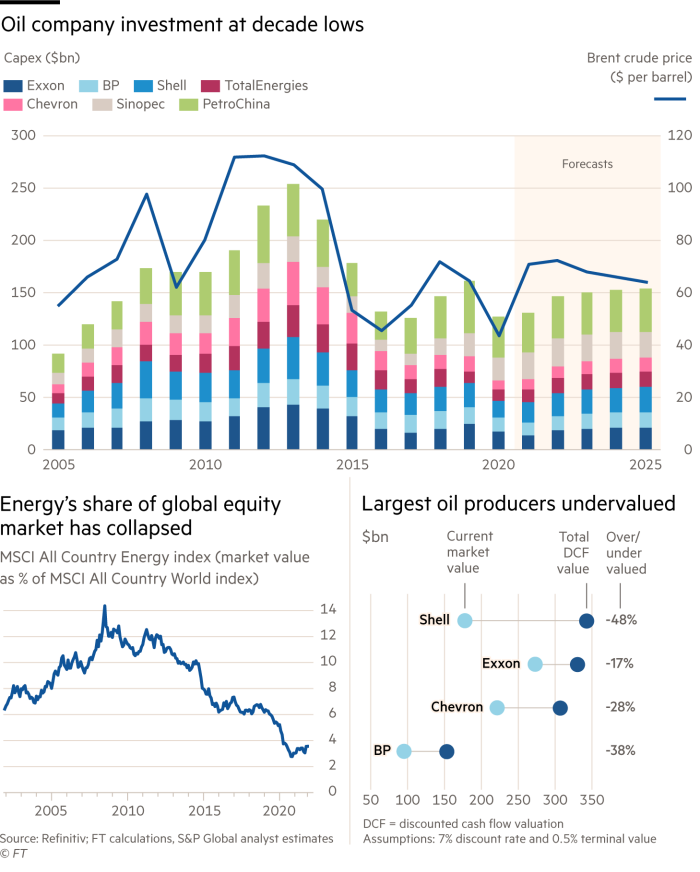Everyone wants to save the planet but no one wants higher domestic fuel bills. The energy transition, as households have discovered this year, is coming too slowly. It is the biggest long-term infrastructure project in human history. Governments need to plan it, just as they plan motorways, airports and broadband rollouts.
Fossil fuels still dominate the primary global energy mix at 81 per cent, according to the International Energy Agency. But anxious investors have been withdrawing capital without corresponding investment in transitional fuels, nuclear, renewables and storage.
As Brent crude oil prices edge towards $90 a barrel, listed oil producers’ annual investment is projected to decline sharply. It is forecast to fall a fifth on average annually in the years to 2025 compared with the previous decade.

Upstream capex relative to gross domestic product will more than halve this year from about 1.1 per cent in 2014, says Rystad Energy. That might explain why even after recent share-price rallies, Shell and BP look undervalued, according to cash flow modelling by Lex.
The US and the EU plan to spend more than $1tn between them on green energy initiatives. But the latest US proposal allocates less than half of that directly to energy provision. Most of the balance would be in tax credits for renewables.
Without a plan to grow baseline energy supply, politicians are only storing up woes for themselves and successors. Energy prices have surged partly owing to low inventories of hydrocarbons. Global stocks of crude and all its product derivatives have dropped to 2018 levels.
Governments have depressed investment in all fossil fuels. This has discouraged development of natural gas, a viable transitional fuel if handled safely. Nuclear is politically toxic, but unavoidable for keeping lights on when renewable supply is low. Storage is another missing piece in the energy security jigsaw.
Private capital allocates itself efficiently in markets that are well-defined. It cannot bear the heavy lifting required of it when the task ahead is so vague. Tighter net zero targets at COP26 will not be enough. Governments must set year-by-year timelines for transition. Without these, expect supply disruption and price spikes to recur.
The post Energy transition: without a plan, disruption and price spikes will recur appeared first on d0llars.
source https://d0llars.com/energy-transition-without-a-plan-disruption-and-price-spikes-will-recur/
No comments:
Post a Comment